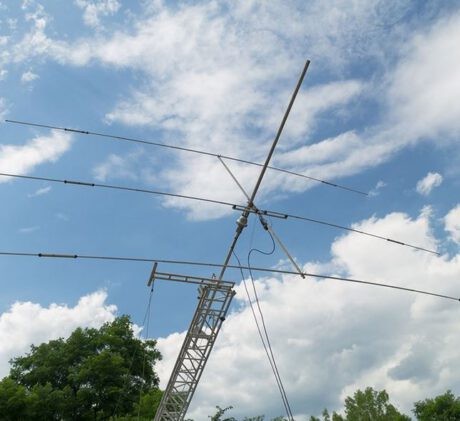The course consists of a number of lectures/seminars on the fundamentals of radio electronics and communication (amplifiers, transmitter/receiver design, antennas and radio propagation), tools and measurement techniques for amplifier and antenna design, tools for propagation prediction and on international and national spectrum regulation and traffic procedures. The focus lies with practical implementation. The participants are given the opportunity to apply their knowledge in a number of practical laboratory exercises in amplifier and antenna design, radio propagation and traffic procedures.
FIK3511 Practical Radio Communication 4.0 credits

The objective of the course is to provide the knowledge and skills that are required to conduct experimental work in radio electronics and wireless systems under their own responsabilty
The course consists of a number of lectures/seminars on the fundamentals of radio electronics and communication (amplifiers, transmitter/receiver design, antennas and radio propagation), tools and measurement techniques for amplifier and antenna design, tools for propagation prediction and on international and national spectrum regulation and traffic procedures. The focus lies with practical implementation. The participants are given the opportunity to apply their knowledge in a number of practical laboratory exercises in amplifier and antenna design, radio propagation and traffic procedures.
After the course, the participants are provided the opportunity to take the exam for a (HAREC) amateur radio certificate necessary for conducting experimental works under their own responsability
Information per course offering
Course offerings are missing for current or upcoming semesters.
Course syllabus as PDF
Please note: all information from the Course syllabus is available on this page in an accessible format.
Course syllabus FIK3511 (Spring 2022–)Content and learning outcomes
Course disposition
Course contents
Radio communication fundamentals
- Radio electronics – amplifier, transmitter and receiver designs
- Antennas and feeeders
- Radio propagation, link budget
Radio Spectrum Regulation
- International conventions, ITU, WARC, RR
- National Regulation, PTS
Trafic procedures
Practical exercises
- RF-power amplifier design and performance measurements
- Antennas and feeders –tools and measurement techniques for design and impedance matching
- Propagation on HF – prediction tools and measurements
- Traffic procedures
Intended learning outcomes
After completing the course the participants should, through practical exercises, be able to explain the fundamental principles of radio propagation and the components of a radio system.
Further, the participants should be able to design and perform measurements on simple amplifiers and antennas and be able to practically assemble a radio system consisting och transmitters, receivers and antennas.
The participants should be able to follow the rules and regulations regarding the resource efficient use of the radio spectrum and traffic procedures.*
After completing the course, the participants should be able to conduct experimental work in radio electronics and radio systems under their own responsibility
* Considering that our radio spectrum is a finite resource, this is a learning outcome that contributes to sustainable development
Literature and preparations
Specific prerequisites
Basic courses in Electrical Circuits, Electronics
Recommended prerequisites
Basic courses in Circuits & Systems, Electronics
Literature
Examination and completion
If the course is discontinued, students may request to be examined during the following two academic years.
Grading scale
Examination
- EXA1 - Examination, 4.0 credits, grading scale: P, F
Based on recommendation from KTH’s coordinator for disabilities, the examiner will decide how to adapt an examination for students with documented disability.
The examiner may apply another examination format when re-examining individual students.
The homework assignments are performed individually and are submitted for grading.
The lab exercises are performed in group, but an individual report must be submitted where the participant analyses the outcome.
An individually written report should be submitted on sustainability aspects on the use of the radio spectrum.
Other requirements for final grade
For a passing grade it is required that all homework is passed, and that both the lab report and the report on use of radio spectrum is passed.
Examiner
Ethical approach
- All members of a group are responsible for the group's work.
- In any assessment, every student shall honestly disclose any help received and sources used.
- In an oral assessment, every student shall be able to present and answer questions about the entire assignment and solution.
Further information
Course room in Canvas
Offered by
Main field of study
Education cycle
Supplementary information
After the course, the participants are provided the opportunity to take the exam for a (HAREC) amateur radio certificate necessary for conducting experimental works under their own responsability.